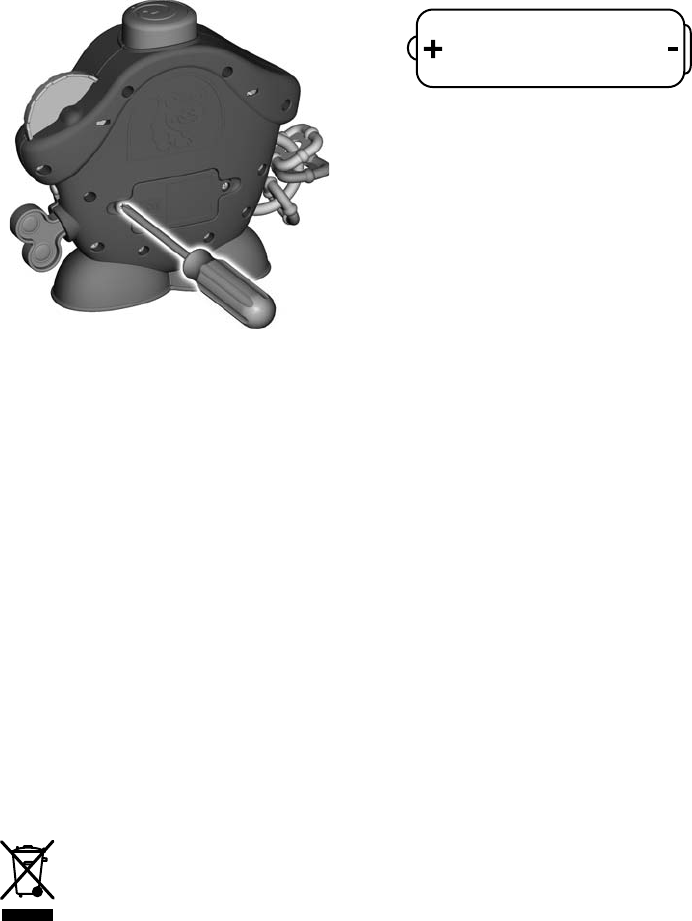
In exceptional circumstances, batteries
may leak fluids that can cause a
chemical burn injury or ruin your
product. To avoid battery leakage:
• Do not mix old and new batteries
or batteries of different types:
alkaline, standard (carbon-zinc) or
rechargeable (nickel-cadmium).
• Insert batteries as indicated inside the
battery compartment.
• Remove batteries during long periods
of non-use. Always remove exhausted
batteries from the product. Dispose of
batteries safely. Do not dispose of the
product in a fire. The batteries inside
may explode or leak.
• Never short-circuit the battery terminals.
• Use only batteries of the same or
equivalent type as recommended.
• Do not charge non-rechargeable batteries.
• Remove rechargeable batteries from
the product before charging.
• If removable, rechargeable batteries are
used, they are only to be charged under
adult supervision.
1,5V x 2
“AA” (LR6)
Battery Replacement
Battery Safety
Information
For best performance, we recommend
replacing the batteries that came
with this toy with two, new “AA” (LR6)
alkaline batteries.
Locate the battery compartment on •
the back of the toy.
Loosen the screws in the battery •
compartment door and remove the door.
Remove the exhausted batteries and •
throw them away.
Insert two, new “AA” (LR6) • alkaline batteries.
Hint: We recommend alkaline batteries
for longer battery life.
Replace the battery compartment door •
and tighten the screws.
If this product begins to operate •
erratically, you may need to reset the
electronics. Slide the power switch off
and then back on.
When sounds from this toy become •
faint or stop, it’s time for an adult to
change the batteries!
Protect the environment by not •
disposing of this product with
household waste (2002/96/EC).
Check your local authority for
recycling advice and facilities
(Europe only).
